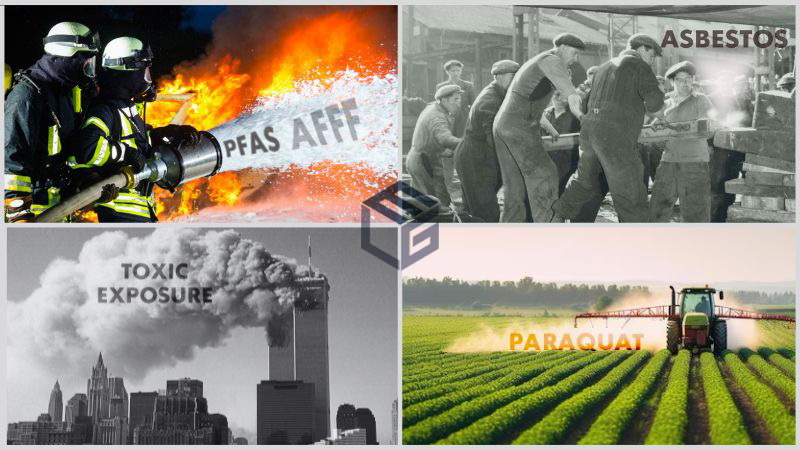Military bases, AFFF, PFAS toxic exposure occupations
Over 700 military bases in the U.S. are contaminated with various harmful substances at the moment, including PFAS, also known as "forever chemicals." Exposure to these emerging contaminants can lead to the development of kidney cancer, leukemia, ulcerative colitis, and prostate cancer, to name a few.
Still, it is worth noting that there are other toxic agents lurking on the country's military installations, including trichloroethylene, benzene, vinyl chloride, and perchloroethylene.
These are some of the occupations that place individuals at risk of toxic exposure on military bases:
- military firefighter
- administrative personnel
- combat specialty personnel
- construction personnel
- electronic and electrical equipment repair personnel
- engineering, science, and technical personnel
- healthcare personnel
- human resource development personnel
- machine operator and production personnel
- media and public affairs personnel
- protective service personnel
- support service personnel
- transportation and material handling personnel
- vehicle and machinery mechanic personnel
- education personnel
Because they are very effective in putting out fires stemming from combustible and flammable liquids and gases, PFAS are also present in the firefighting foam known as AFFF, which both civilian and military firefighters use. As a result, toxic exposure becomes inevitable in their case. Exposure to the PFAS in this fire suppressant occurs mostly by inhalation and ingestion. Cancer is now a leading cause of death among firefighters nationwide, and occupational toxic exposure plays a significant role in this disheartening statistic.
Paraquat exposure occupations
First manufactured in 1961 under the trade name Gramoxone, paraquat is a highly toxic, restricted-use herbicide, exposure to which can cause Parkinson's disease. A recent meta-analysis of 13 studies found a 64% increase in the likelihood of developing the disease after years of paraquat exposure. The herbicide is currently sold under dozens of brand names across the country, such as Blanco, Parazone, Firestorm, and Helmquat. Exposure occurs by inhaling the vapors the herbicide releases after it is applied to crops, as ingestion is, in most cases, fatal.
The following are the occupations that may entail paraquat exposure:
Due to the lack of a warning on the product's label regarding the danger of developing Parkinson's disease as a consequence of exposure, paraquat manufacturers can be held liable for negligence and failure to warn if a person comes to struggle with this neurodegenerative disease. While it cannot reverse the physical and emotional damage, the financial compensation that might be available to paraquat exposure victims can help with their medical expenses.
9/11 toxic exposure occupations
On the fateful day of September 11, 2001, as part of the aftermath of the terrorist attacks, over 70 known carcinogens and other toxic chemicals were released into the air throughout Lower Manhattan. As a result of having inhaled harmful air, responders are still developing cancers and respiratory diseases decades later. The illnesses 9/11 responders are at high risk of developing include lung cancer, asthma, ovarian cancer, chronic cough syndrome, pancreatic cancer, and mesothelioma, as asbestos was also released into the air.
These are the 9/11 occupations implying a serious risk of developing cancer or another disease due to toxic exposure:
- firefighter
- police officer
- paramedic
- emergency medical personnel
- demolition worker
- debris removal worker
It is important to know that, in addition to survivors, New York City Fire Department active or retired members and World Trade Center general responders might be eligible for financial compensation from the 9/11 Victim Compensation Fund if they suffer from a qualifying health condition. To date, 1,469 World Trade Center Health Program members have died from airway and digestive disorders, whereas 1,366 passed away from cancer.
Asbestos exposure occupations
As a naturally occurring mineral with a wide range of convenient properties and industrial uses, asbestos has been employed since ancient times. However, prolonged or frequent exposure can result in mesothelioma, a very aggressive and almost always fatal cancer, within 20 to 50 years. Exposure to this mineral can also cause lung, colorectal, throat, and bronchial cancer. During the past century, people experienced heavy asbestos exposure in numerous civilian and military occupations.
